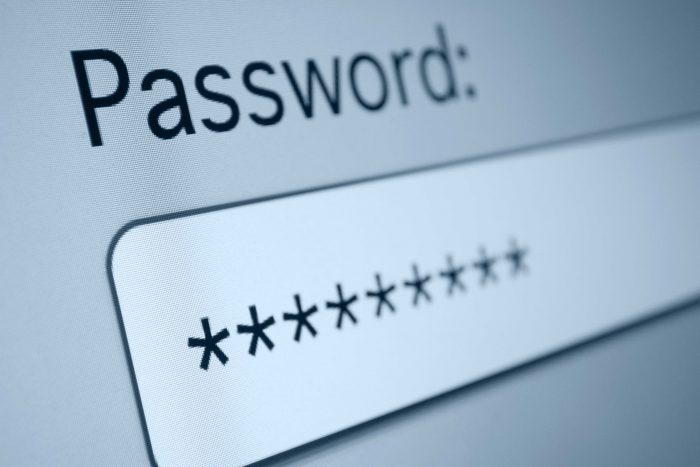Secure Your Passwords

Secure Your Passwords
“Please change your password. Your password has expired.” After typing out my lengthy username and password, this is my favorite message to get (not!). Then, I attempt a different password that’s easy for me to remember, and I receive my second favorite message: “Password has already been used. Please choose another password.” Better yet, the website will give you the “Password is too weak.” message.
First world problems. Changing our passwords every few weeks would be painless if we only had one account. However, we have numerous accounts: for social media, online banking, online shopping, even for restaurants we order from. As soon as you get all your passwords memorized, it’s time to change one. As frustrating as this may be, changing your passwords is for your own benefit and security.
Do you remember several months ago, when about 30 million accounts were breached on everyone’s favorite social media website? Hackers gained access to personal information, such as phone numbers, recent locations, email addresses, passwords, etc. By simply having an account on a website with a vulnerable server, millions of people lost control of their security.
Once hackers have personal information, what do they do with it? According to Secplicity.com, first, hackers collect all the valuable personal information within the files. Then, hackers will package up the stolen information to sell in bulk on the black market. Credit card numbers and other financial information can also be bundled up and sold in groups of up to 100. Bulk information is sold to criminals called “brokers,” who then sell the information to “carders.” The carder uses credit card information to buy gift cards. Using the gift cards, the carder buys physical items to sell online. The carders take a series of additional steps to avoid detection.
Hackers use the list of personal information to find other accounts associated with the same email address. Using the stolen password, the hacker will attempt to hack the other accounts. If the user uses the same password for each account, the hacker will gain access to all accounts. Having a unique password for each account significantly lowers your chances of having your information stolen.
Unfortunately, hackers have another way of guessing passwords–and it’s with the help of artificial intelligence. It’s called brute forcing, which is when the computer attempts every possible password, using every word, even adding symbols, numbers, and uppercase letters. Having complex passwords is also necessary for your own security.
Download a secure password manager to keep all your passwords in one place. Try using an acronym for a phrase, alternating between upper and lower case letters. Throw in a symbol or a number in the middle of the password as opposed to the beginning or end. Fifteen characters or more is a safe length for a complex password.
When creating passwords, remember this: For maximum security, the password for each account must be both unique and complex.
Do you have questions about your insurance? Find an insurance agent near you with our Agent Finder
Search All Blogs
Search All Blogs
Read More Blogs
The Business “Prenup”: Why Business Partners Need Life Insurance in February
Love your business partner? Protect your company with a Life Insurance-funded Buy-Sell agreement to ensure the business survives the unexpected.
Heading South? Insuring Your Mid-Winter Break Road Trip in February
Driving to find some sun this week? Check your roadside assistance and rental car coverage before you leave the driveway.
Spring Dreams, Winter Schemes: Updating Your Insurance Before Your Spring Renovation
Planning a Spring kitchen remodel? Learn why you need to call your insurance agent before the contractors arrive to ensure your project is covered.
Shadow or Spring? The Quirky Science and Folklore of Groundhog Day 2026
Will he see his shadow? Dive into the history and humor of Groundhog Day 2026 and why we still trust a rodent with our weather forecasts.
Stocked for Love: Protecting High-Value Valentine’s Inventory with Business Insurance
Is your Valentine’s stock protected? Ensure your business insurance accounts for the massive inventory surge happening in early February.
New Life, New Responsibility: Why a February Arrival Means Updating Your Policy
Welcoming a new family member this February? It’s time to move life insurance to the top of your to-do list to ensure your child’s future is secure.
Delivering Love: The Insurance Risks of Valentine’s Week Gig Work
Delivering flowers or chocolates for extra cash this Valentine’s? Make sure your car is actually insured for delivery work before you hit the road.
Tax Prep & Protection: Ensuring Your Home Office is Fully Insured for 2026
Prepping your taxes? Don’t forget to check your home office insurance. Your standard policy might not cover your professional gear or liability.
More Than Just a Sale: The Fascinating Evolution of Presidents’ Day
Why is Presidents’ Day on a Monday? Explore the history, the politics, and the trivia behind our mid-February celebration of national leadership.
The Presidents’ Day Shutdown: Managing Risk During Holiday Closures and Sales
Closed for the holiday or open for a sale? A business guide to managing liability, employee pay, and property security during Presidents’ Day weekend.










